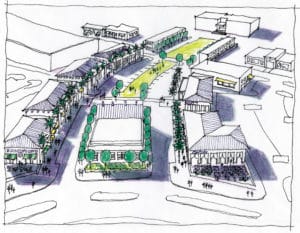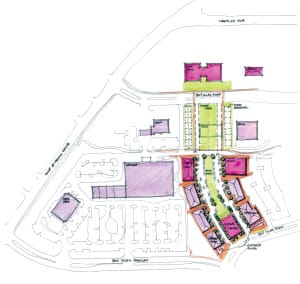Top Story
Date: October 20-25, 2013
Location: Longboat Key, FL
Sponsor: Town of Longboat Key, FL
Subject Area: Economic Development and Placemaking
Panel Chair: Kamuron Gurol
For the panel report, please visit ULI’s Knowledge Finder
Background and Panel Assignment
Located off the southcoast of Florida, Longboat Key is a ten-mile barrier island and a beautiful, peaceful, and unique community. The key’s convenient location, desirable climate, and white sand beaches have made the town an attractive place for year-round recreational opportunities including boating, fishing, golf, tennis, and biking.
While there is much to love about Longboat Key, the community has recognized the need for change. Most homes and condominiums were constructed more than 30 years ago, and many now do not meet flood regulations or the demands of the new and emerging real estate markets. There have been divisive and distracting debates over density restrictions adopted by the town in 1984. Community leaders have expressed concern that Longboat Key’s future must be revisited to ensure that the high-quality lifestyle and pleasing mix of residential areas and commercial uses can be maintained and enhanced.
The town of Longboat Key asked ULI to take an objective, big-picture perspective to help inform an update to the town’s 20-year comprehensive plan and vision and to create a roadmap implementation strategy with specific next steps. Using a broad-based community process, they identified ten questions of specific interest focusing on the following: evolving market demand; balancing residential, commercial, and tourism uses; creative approaches to leverage Longboat Key’s assets; and comments on the advisability of a town center and community center. The ULI panel was composed of ten experts and staff who analyzed data, interviewed locals, and brought their experience to bear on the challenges and opportunities facing the community. This report will help guide the community as it charts a new course for the future.
Summary of Recommendations
- Focus on the future instead of the past. The panel recommends that the town’s comprehensive plan, be replaced with a new plan tailored to meet the needs of the future and that modern codes be developed and adopted to implement the plan in the land development process.
- Relax rental restrictions. The panel found that the restrictions on rentals (principally, the one-rental-per-30-days restriction) may do more harm than good, especially for the success of local businesses, and the panelists recommend that those restrictions be relaxed or abandoned.
- Implement early actions for opportunity sites. There are several opportunity sites in the south, middle, and north parts of the key that merit attention and early action, perhaps with targeted planning efforts involving landowners, nearby residents, and community leaders. Redevelopments at the Colony and the Whitney Center/Village are two sites of interest, and the town government should engage in such efforts now to ensure that the right vision for the future can be developed.
- Complete the town center at the center of the community. Most interviewees said that the Publix supermarket was the de facto center of the Longboat Key community. The panel recommends completing the picture by focusing new public and private development in the area and crafting an updated master plan that emphasizes healthy lifestyles, walkability, open space, and community events like a farmers market, all of which will catalyze new private development like retail and restaurants. If desired, a broader array of housing styles including choices for seniors could also be planned and built.
- Locate the community/cultural center at the town center. While the panel does not have an opinion as to whether the town should build a community/cultural center, such a facility would certainly be a positive force and further catalyze new commercial development in the area and should be located in the new town center.
- Mobility on Longboat Key. Mobility is an important element in the quality of life of residents in a community. It serves as the lifeblood for local businesses and the health of residents. Enhancing the island connectivity elements reduces residents’ and visitors’ reliance on the automobile, which already creates roadway capacity issues during the high season.


